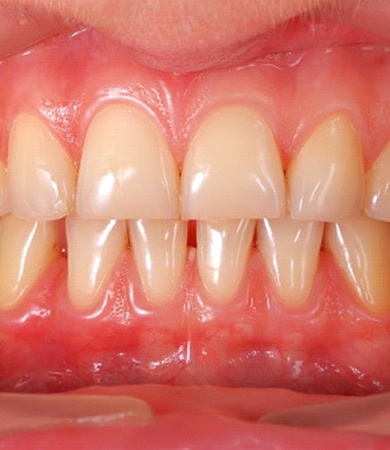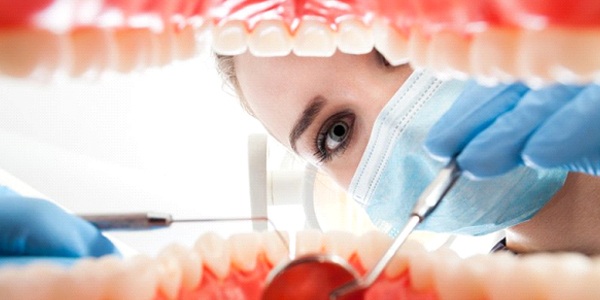Gum Disease Treatment Glastonbury
Save Your Gums, Save Your Smile

When plaque and tartar go unremoved, your teeth are far from the only thing that’s negatively affected. The fact is, gum tissue is very sensitive to plaque acids in teeth, which means they can easily become inflamed, tender, and uncomfortable. Fortunately, there is a solution to treat your chronic gum disease, regardless of how advanced it has become. The dentists at Glastonbury Dental Associates perform comprehensive gum therapy to stop gum disease in its tracks and prevent tooth loss; simply call our office to get started!
Why Choose Glastonbury Dental Associates for Gum Disease Treatment?
- Soft Tissue Laser Dentistry Available
- Comprehensive Scaling & Root Planing
- Antibiotic Therapy Available
Symptoms of Gum Disease

If you aren’t sure if you have gum disease, take a good look in the mirror at your gums. Healthy gums should appear light pink in color. If they are red or dark red, there’s a good chance that gum disease has already begun to develop. Additionally, if your gums feel tender or sensitive to the touch, such as when you’re brushing or flossing, you might have some level of gum disease. If your gums bleed every time you floss and not just after you haven’t flossed for a long time, it’s because your gums have become increasingly inflamed. Other signs of gum disease include:
- Gum recession that causes teeth to look longer
- Chronic bad breath
- Loose or separating teeth
- Inflamed and red gum tissue
Why is it Important to Diagnose Gum Disease Early?

During the early stages of gum disease, called gingivitis, you can still effectively reverse your current symptoms. However, once gum disease has progressed past this stage and into the periodontitis stage, the effects will not go away so easily. Improved brushing and flossing will not be enough to manage this issue, meaning you’ll need to spend more money on treatment and additional visits to the office. In fact, periodontal therapy requires visits every three to four months in order to effectively treat your symptoms.
Gum Disease Treatment Options
There are two types of treatments that are performed in order to effectively address advanced gum disease, called scaling and root planing and antibiotic therapy.
Scaling and Root Planing

Scaling is the process of removing plaque and tartar from areas of teeth above and below the gum line. This step is necessary because neither a toothbrush nor a professional cleaning can properly remove this harmful material alone. Root planing involves smoothing out the tooth roots so they can reattach to the gums.
Antibiotic Therapy

Antibiotic therapy is a process where we apply antibiotic gel within the gum pockets that have formed as a result of your gum disease. Once we apply the antibiotic, it will help your body fight off the infection and control the accumulation of harmful oral bacteria, minimizing your symptoms as well.
